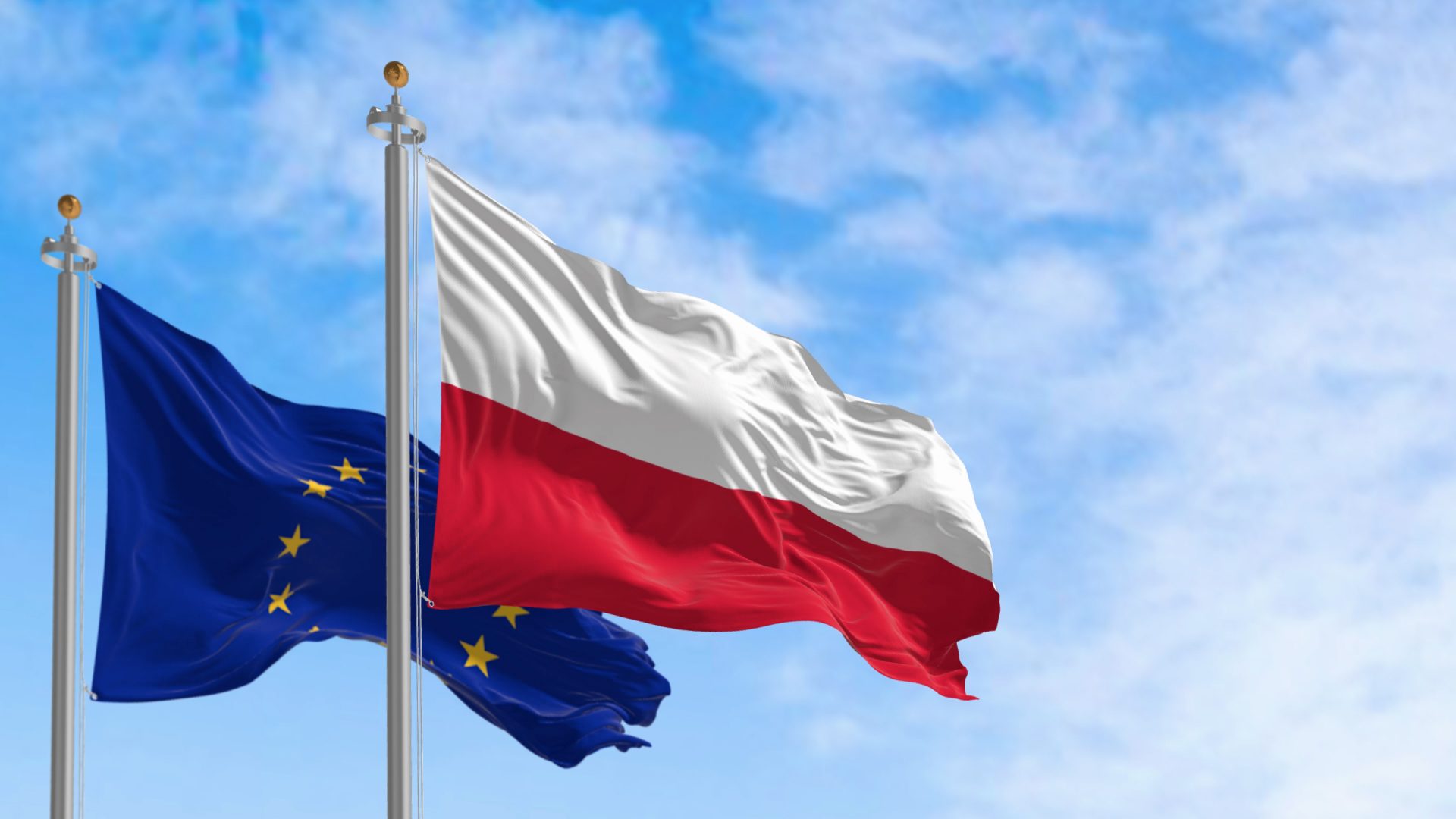
Security takes centre stage across Polish Presidency priorities
As ‘Donald Trump 2.0’ kicks-off by pulling the US out of the Paris Climate Agreement and putting a pause on foreign assistance, Poland has launched its six-month EU Council Presidency under a different rallying cry: “Security, Europe!”. MEPs discussed the priorities in Parliament this morning, with continuing war on Europe’s doorstep and in the Middle East compelling EU countries to better cooperate on strategic autonomy, stronger defence capacities and support to Ukraine. Beyond the EU, the Presidency will seek deeper cooperation with NATO and key countries including the US, the UK and South Korea. This security focus can be seen throughout the Presidency priorities, which cover diverse topics like cybersecurity, economic resilience and energy security.
Poland spends 4.7% of its GDP on defence and will try to convince EU Member States to increase their own spending. They are also likely to use their top-spender status to push others to agree to dedicate more of the post 2027-Multiannual Financial Framework (MFF) resources to overall EU defence. Coupled with increased national spending, this would enable EU Member States to develop their defence and readiness capabilities, boost defence industries, and strengthen defence and dual-use infrastructure.
On the defence legislative agenda, the Polish Presidency will strive to resolve deadlocks and finalise the European Defence Industry Programme (EDIP). Starting with a €1.5 billion envelope, Poland will have the difficult task to steer negotiations as EU Member States discuss what precedents they want to set for European defence joint procurement and a Defence Union.
Energy security: a key focus in the energy transition
Against the backdrop of Europe’s historical energy dependence, especially on Russia, the focus of the Polish Presidency’s energy policy will be on enhancing security of supply. This entails diversifying supply and withdrawing Russian energy imports, but also developing Europe’s renewable energy infrastructure. To attain these goals, the Presidency will assess the implementation of the RePowerEU objectives, and will work on the Commission’s forthcoming Clean Industrial Deal, announced for 26 February. The Deal will be one of the key policy initiatives during this term.It aims to foster investment in decarbonisation and clean technologies to ensure that European industry remains competitive during the energy transition. It will be released together with an “Action Plan on Affordable energy” and a “Roadmap towards ending Russian energy imports”.
Resilience in environment and transport
While the previous term focused on adopting wide-reaching environmental legislation, the narrative in EU policy-making for this term is shifting towards ensuring that industry is not overburdened with additional requirements. The Polish Presidency is therefore promising to focus on policies that benefit rather than burden people and industry. The Presidency aims to develop tools to combat climate disinformation, and will continue the legislative work on files such as the Waste Framework Directive, the Regulation on Preventing Plastic Pellet Losses, and the Green Claims Directive.
The Presidency is also aiming to strengthen the resilience and competitiveness of the transport sector. In particular, given its importance in crisis situations, the Presidency will prioritise the rail sector, working towards the adoption of the Regulation on railway infrastructure capacity. It will also advance the Council’s work on road transport, aviation and maritime transport (such as the Roadworthiness Package revision or the Air Passenger Rights Regulation, among others).
Cybersecurity and network resilience top list of tech policies
Aligned with its security focus, the Presidency is prioritising efforts to enhance cybersecurity across the EU. Key initiatives include updating and reinforcing the cyber crisis coordination framework (Cyber Blueprint) and a possible new EU cybersecurity strategy, pending the initiative from the Commission.
Poland will also seek to review and harness AI’s potential, together with other cutting-edge technologies’ including quantum. Accordingly, the Presidency will organise a Digital Summit in Gdansk on June 17 and 18 dedicated to SMEs and new technologies, echoing previous Digital Assemblies which gathered digital stakeholders for the past few years.
The Presidency will take a closer look at the efficiency of the latest digital regulations to be implemented, with the aim to reduce burdens for companies and foster the EU’s digital economy. Discussions will prioritise harmonising approaches, sharing best practices, and identifying areas requiring deeper cooperation.
With the upcoming review of the telecom regulatory framework and the announced “Digital Networks Act”, the Presidency will be in the front seat driving discussions on the future of telecoms and wants to focus on secure and resilient connectivity while advancing the discussions on the revision of the Radio Spectrum Policy Programme.
Poland is also willing to explore of the possibilities offered by digital diplomacy and strengthen the EU voice on the digital international scene.
What next?
As Polish PM Donald Tusk addressed the European Parliament this morning, the mood towards the priorities was largely positive, while it’s response to Trump’s first actions was somewhat defiant. Tusk stated that Europe “was, is and always will be great”, while the EPP group called out Elon Musk, saying he will need to learn to cooperate at the transatlantic level.
It is clear from the priorities set out that Poland sees the next six months as an opportunity to maximise resilience across EU policy and steel Europe against the key global challenges that continue to define this decade.
As the new mandate’s first presidency of the Council of the EU, accompanying the setting up of a new European Commission and the new US Presidency, Poland has the opportunity to set the tone of the mandate and of the new trio of presidencies with Denmark (second semester) and Cyprus (first sits borders – while also preparing for a key national milestone: the Polish presidential elections in May.
Powodzenia!
Contact us to help you navigate relevant legislation throughout the policymaking process.
Follow us on Linkedin and X for logos’ view on key EU developments.